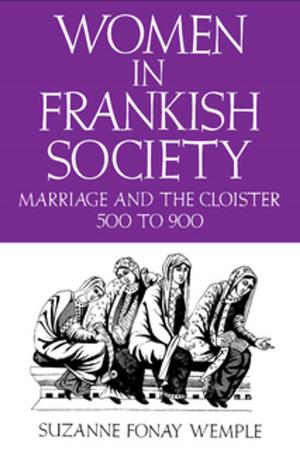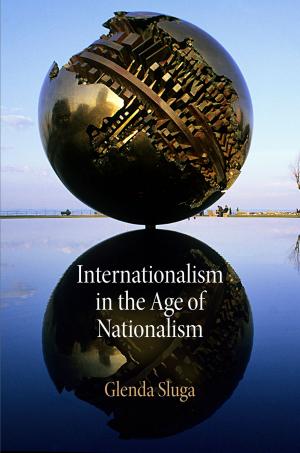The Organization of Islamic Cooperation and Human Rights
Nonfiction, Social & Cultural Studies, Political Science| Author: | ISBN: | 9780812295948 | |
| Publisher: | University of Pennsylvania Press, Inc. | Publication: | April 30, 2019 |
| Imprint: | University of Pennsylvania Press | Language: | English |
| Author: | |
| ISBN: | 9780812295948 |
| Publisher: | University of Pennsylvania Press, Inc. |
| Publication: | April 30, 2019 |
| Imprint: | University of Pennsylvania Press |
| Language: | English |
Established in 1969, the Organization of Islamic Cooperation (OIC) is an intergovernmental organization the purpose of which is the strengthening of solidarity among Muslims. Headquartered in Jeddah, the OIC today consists of fifty seven states from the Middle East, Asia, Africa, and Latin America. The OIC's longevity and geographic reach, combined with its self-proclaimed role as the United Nations of the Muslim world, raise certain expectations as to its role in global human rights politics. However, to date, these hopes have been unfulfilled. The Organization of Islamic Cooperation and Human Rights sets out to demonstrate the potential and shortcomings of the OIC and the obstacles on the paths it has navigated.
Historically, the OIC has had a complicated relationship with the international human rights regime. Palestinian self-determination was an important catalyst for the founding of the OIC, but the OIC did not develop a comprehensive human rights approach in its first decades. In fact, human rights issues were rarely, if at all, mentioned at the organization's summits or annual conferences of foreign ministers. Instead, the OIC tended to focus on protecting Islamic holy sites and strengthening economic cooperation among member states. As other international and regional organizations expanded the international human rights system in the 1990s, the OIC began to pay greater attention to human rights, although not always in a manner that aligned with Western conceptions.
This volume provides essential empirical and theoretical insights into OIC practices, contemporary challenges to human rights, intergovernmental organizations, and global Islam. Essays by some of the world's leading scholars examine the OIC's human rights activities at different levels—in the UN, the organization's own institutions, and at the member-state level—and assess different aspects of the OIC's approach, identifying priority areas of involvement and underlying conceptions of human rights.
Contributors: Hirah Azhar, Mashood A. Baderin, Anthony Tirado Chase, Ioana Cismas, Moataz El Fegiery, Turan Kayaoglu, Martin Lestra, Ann Elizabeth Mayer, Mahmood Monshipouri, Marie Juul Petersen, Zeynep Şahin-Mencütek, Heiní Skorini, M. Evren Tok.
Established in 1969, the Organization of Islamic Cooperation (OIC) is an intergovernmental organization the purpose of which is the strengthening of solidarity among Muslims. Headquartered in Jeddah, the OIC today consists of fifty seven states from the Middle East, Asia, Africa, and Latin America. The OIC's longevity and geographic reach, combined with its self-proclaimed role as the United Nations of the Muslim world, raise certain expectations as to its role in global human rights politics. However, to date, these hopes have been unfulfilled. The Organization of Islamic Cooperation and Human Rights sets out to demonstrate the potential and shortcomings of the OIC and the obstacles on the paths it has navigated.
Historically, the OIC has had a complicated relationship with the international human rights regime. Palestinian self-determination was an important catalyst for the founding of the OIC, but the OIC did not develop a comprehensive human rights approach in its first decades. In fact, human rights issues were rarely, if at all, mentioned at the organization's summits or annual conferences of foreign ministers. Instead, the OIC tended to focus on protecting Islamic holy sites and strengthening economic cooperation among member states. As other international and regional organizations expanded the international human rights system in the 1990s, the OIC began to pay greater attention to human rights, although not always in a manner that aligned with Western conceptions.
This volume provides essential empirical and theoretical insights into OIC practices, contemporary challenges to human rights, intergovernmental organizations, and global Islam. Essays by some of the world's leading scholars examine the OIC's human rights activities at different levels—in the UN, the organization's own institutions, and at the member-state level—and assess different aspects of the OIC's approach, identifying priority areas of involvement and underlying conceptions of human rights.
Contributors: Hirah Azhar, Mashood A. Baderin, Anthony Tirado Chase, Ioana Cismas, Moataz El Fegiery, Turan Kayaoglu, Martin Lestra, Ann Elizabeth Mayer, Mahmood Monshipouri, Marie Juul Petersen, Zeynep Şahin-Mencütek, Heiní Skorini, M. Evren Tok.















